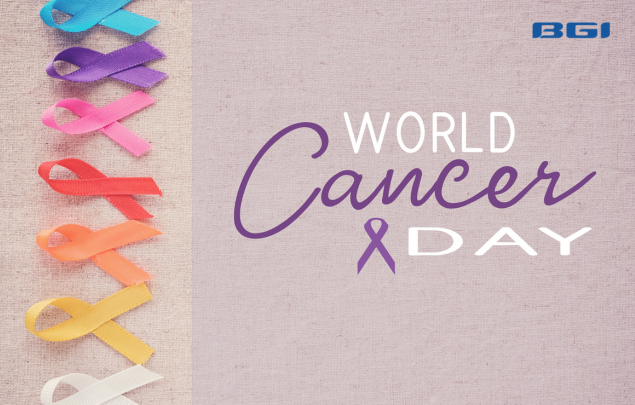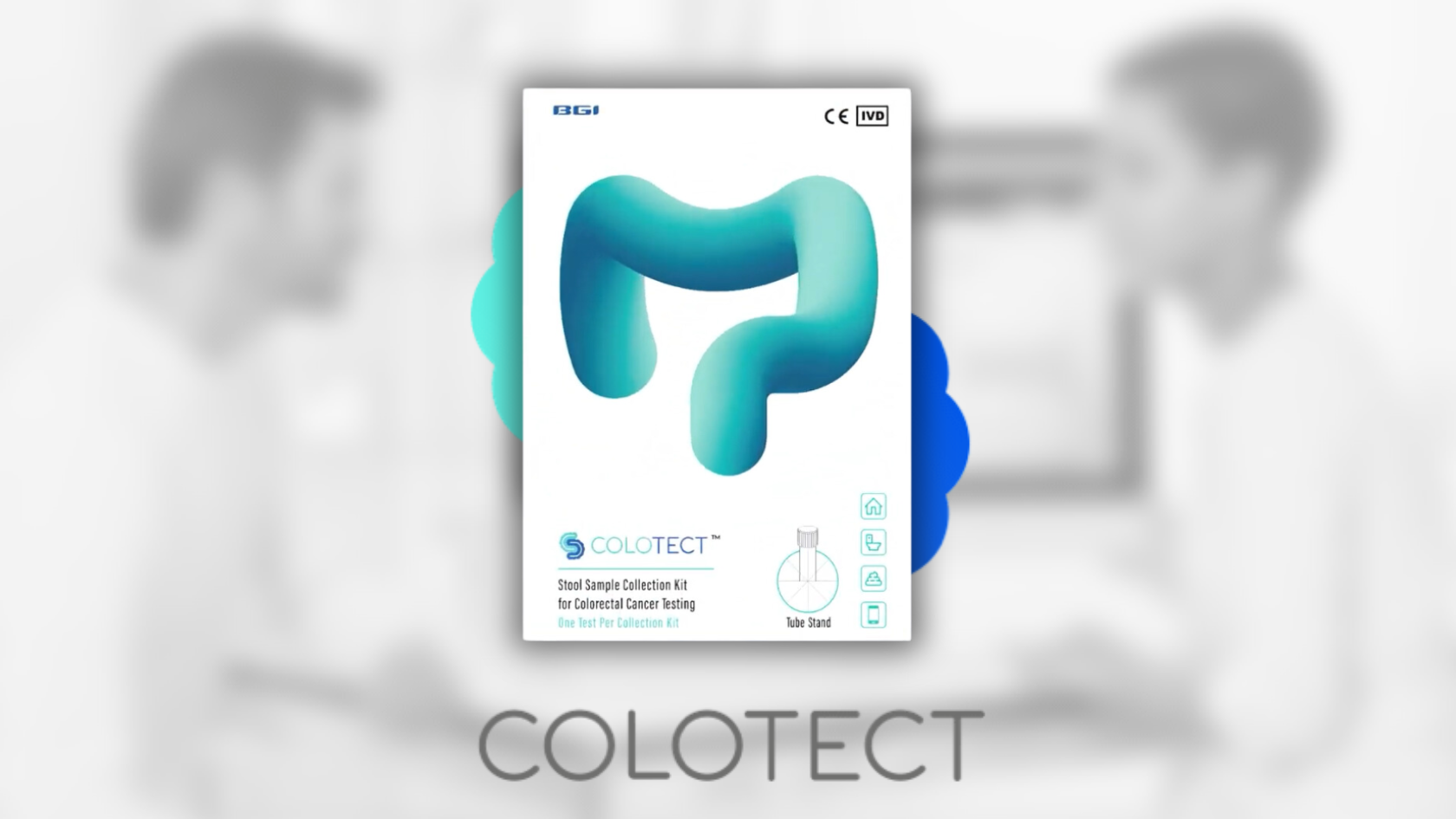Early Screening and Lifestyle Changes Prevent Nearly Half Cancer Cases | World Cancer Day
2025-02-03
Every minute, 38 people are diagnosed with cancer, and 18 people die from it globally, according to the World Health Organisation, and it's estimated to increase by 77% to 35 million in 2050. But what if we could predict cancer risks before they even develop? Genetic testing helps detect cancer risks early, making it essential for cancer prevention and control.

As the world marks World Cancer Day on February 4, under the theme “United by Unique” of 2025-2027, the conversation around personalized medicine and accessible screening options has never been more relevant. Advanced DNA-based new innovations are ensuring that cancer care is more effective and accessible.
Early Screening Improve Survival Rate
Cancers, like colorectal, breast, and cervical cancer, are highly treatable if caught early. Yet millions of people avoid screening altogether, often because traditional tests are invasive, expensive, inconvenient, or intimidating. For colorectal cancer (CRC), one of the most preventable yet deadliest cancers, the numbers are clear: if caught in its earliest stage, the five-year survival rate is over 90%. But when diagnosed late, survival drops to just 14%.
Colonoscopies, the gold standard for CRC screening, require fasting, laxative preparation, and a hospital visit, which can be enough to make someone put it off indefinitely. The complicated preparation makes it easy for people to put it off indefinitely. In many cases, people simply don’t realize they’re at risk until symptoms appear—by which time, treatment is far more difficult.
Screening Needs to be Accessible
Traditional cancer screening methods aren’t just uncomfortable—they’re also a major reason why screening rates remain low worldwide. To tackle these barriers to early screening, DNA-based stool testing as an innovative approach, is offering an easier, non-invasive and promising alternative that can catch cancer early.
Last year, we covered Uncle Ren’s colorectal cancer screening story in Hangzhou, China. Another participant in the same public health program, Uncle Jiang, had never been screened for CRC before. When his test results came back positive for abnormal biomarkers, he immediately feared the worst.  "I thought it was over. Maybe it was already late-stage cancer," he recalled.
"I thought it was over. Maybe it was already late-stage cancer," he recalled.
With the help of his family doctor, he went to a specialized hospital for a colonoscopy. The night before the procedure, however, turned out to be almost as stressful as waiting for the results.
He recalled going to the toilet every fifteen minutes. "If you ask for a colonoscopy at the beginning, even if it is a free test, I probably won't choose it. It won't stop all night." He said reluctantly. Fortunately, the colonoscopy revealed that he had a tubular adenoma, a precancerous condition, and six polyps were removed, eliminating his health risks.
Uncle Jiang’s story isn’t unique. Millions avoid screening due to inconvenience or fear—but when non-invasive options like stool DNA tests become available, more people get tested, more cases are caught early, and more lives are saved.
Non-invasive Method Improves Screening Rate
To address low screening rates, researchers and healthcare providers are turning to DNA-based stool testing, a game-changing alternative to traditional colonoscopy. "The best screening method is the one that the patient accepts and adheres to because that’s the method that will actually benefit them," Prof. Varut Lohsiriwat, professor of surgery in the Division of General Surgery (Section of Colorectal Surgery) from Siriraj Hospital, Mahidol University highlighted in an interview.  Tests like BGI Genomics’ COLOTECT® multi-target stool DNA test provide a painless, at-home alternative to colonoscopy for early CRC detection. The recent study lead by Prof. Varut Lohsiriwat’s team in Thailand found that stool DNA testing is highly effective, offering an accurate and accessible alternative to invasive screening among the Thai population. As a reliable alternative to colonoscopy, multitarget DNA testing can highly improve the accessibility and compliance rate for the general public in the recommended screening target age group.
Tests like BGI Genomics’ COLOTECT® multi-target stool DNA test provide a painless, at-home alternative to colonoscopy for early CRC detection. The recent study lead by Prof. Varut Lohsiriwat’s team in Thailand found that stool DNA testing is highly effective, offering an accurate and accessible alternative to invasive screening among the Thai population. As a reliable alternative to colonoscopy, multitarget DNA testing can highly improve the accessibility and compliance rate for the general public in the recommended screening target age group.
A study found that the availability of multitarget stool DNA (mt-sDNA) colorectal cancer screening led to high screening compliance of 88% and diagnostic colonoscopy compliance on mt-sDNA positive cases of 96%, published in World Journal of Gastroenterol in 2017. By making early detection simple and accessible, more people will get screened—and fewer cases will advance to life-threatening stages.
Prevention Starts Small
While genetic screening helps detect cancer early, healthy lifestyle choices remain a crucial defense against developing cancer in the first place. Up to 40% of cancers diagnosed and nearly half of cancer deaths could be prevented through lifestyle changes, according to a study published in CA: A Cancer Journal for Clinicians.

Another study, published in Frontiers in Molecular Biosciences in 2022, shows that high-intensity exercise can suppress tumor growth by influencing key cancer-related genes. The researcher used High-throughput sequencing to identify differentially expressed genes (e.g., Trim63, Fos, Col1a1, Six2) regulated by this exercise, which negatively impacted colorectal cancer development. These effects were confirmed in vitro.
Exercise's tumor-suppressive effects depend on type, intensity, frequency, and cancer type, necessitating personalized exercise interventions. This study used mice subjected to high-intensity aerobic exercise (90% of maximal heart rate) to highlight the importance of preventive exercise and an exercise-centered lifestyle. The World Cancer Research Fund (WCRF) has also reported that diets rich in vegetables, whole grains, and lean proteins significantly reduce cancer risk, while smoking alone is responsible for one in five cancer deaths worldwide.
The World Cancer Research Fund (WCRF) has also reported that diets rich in vegetables, whole grains, and lean proteins significantly reduce cancer risk, while smoking alone is responsible for one in five cancer deaths worldwide.
Prevention doesn’t have to mean drastic lifestyle overhauls. Small, consistent changes—more movement, healthier eating, and cutting back on harmful habits—can make a big difference in reducing cancer risk over time.
As World Cancer Day 2025 approaches, it’s a reminder that while each cancer journey is different, we all share the same goal: reducing cancer’s impact. Cancer doesn’t play fair—but with better screening, smarter prevention, and early action, we can change the future.
About COLOTECT®
COLOTECT® is a non-invasive fecal DNA test developed by BGI Genomics for detecting CRC and precancerous lesions. It uses multiplex methylation-specific PCR (MSP) technology to trace abnormal DNA-methylation biomarkers in CRC from stool samples. COLOTECT®® has a sensitivity of 88% for detecting CRC, and a sensitivity of 46% for the early detection of advanced adenomas—both of which outperform conventional fecal tests.
About BGI Genomics
BGI Genomics, headquartered in Shenzhen, China, is the world's leading integrated solutions provider of precision medicine. Our services cover more than 100 countries and regions, involving more than 2,300 medical institutions. In July 2017, as a subsidiary of BGI Group, BGI Genomics (300676.SZ) was officially listed on the Shenzhen Stock Exchange.
Read:
Research Proves Stool DNA as Non-Invasive Alternative for Colorectal Cancer Screening | BGI Insight
"I was saved from the silent killer – colorectal cancer" | Uncle Ren’s Story
Will Colorectal Cancer Become a Chronic Disease? | BGI Insight